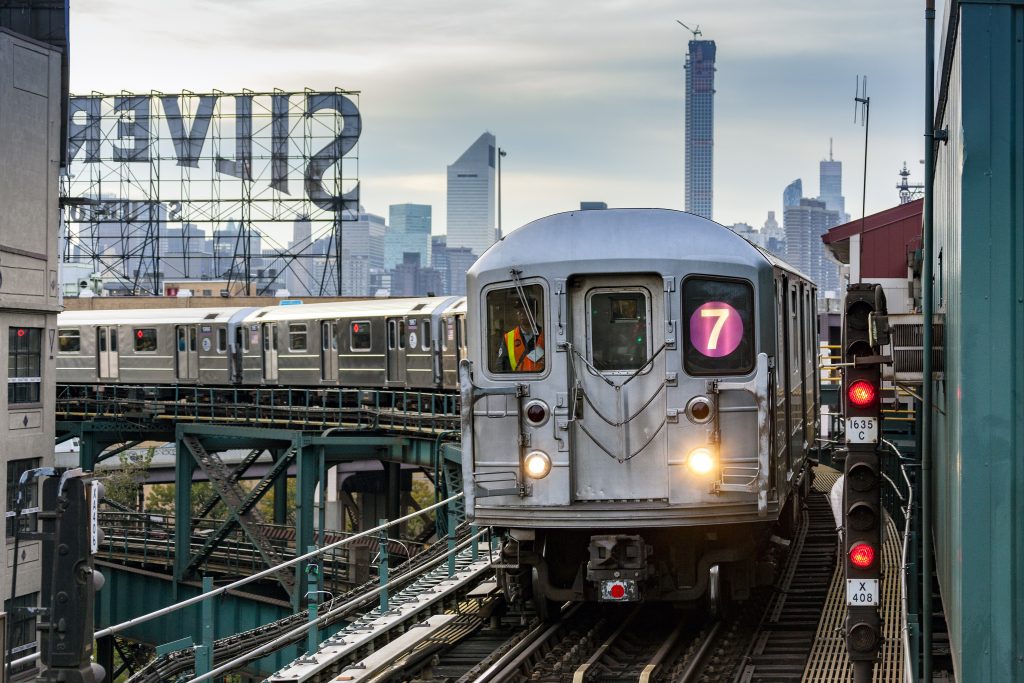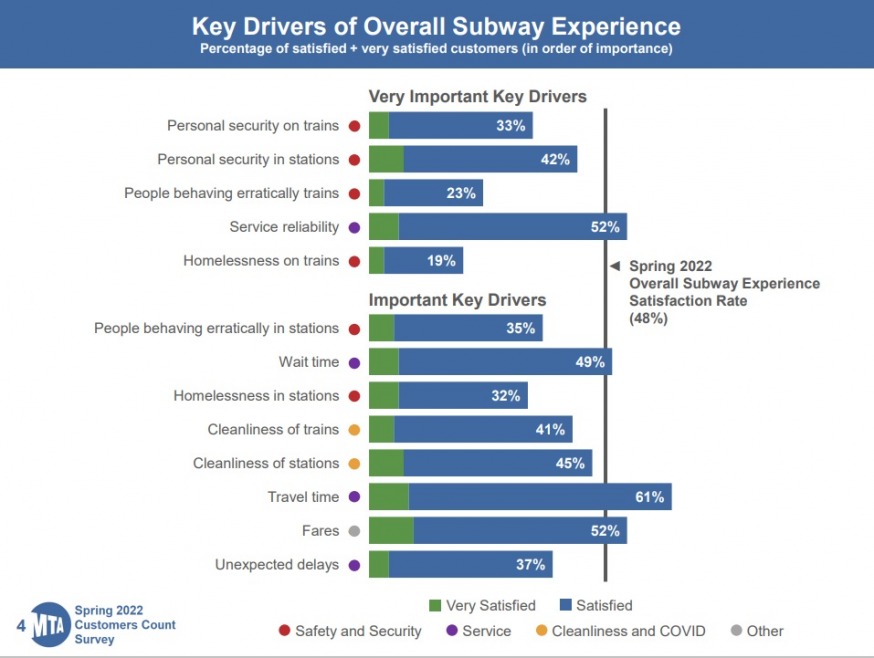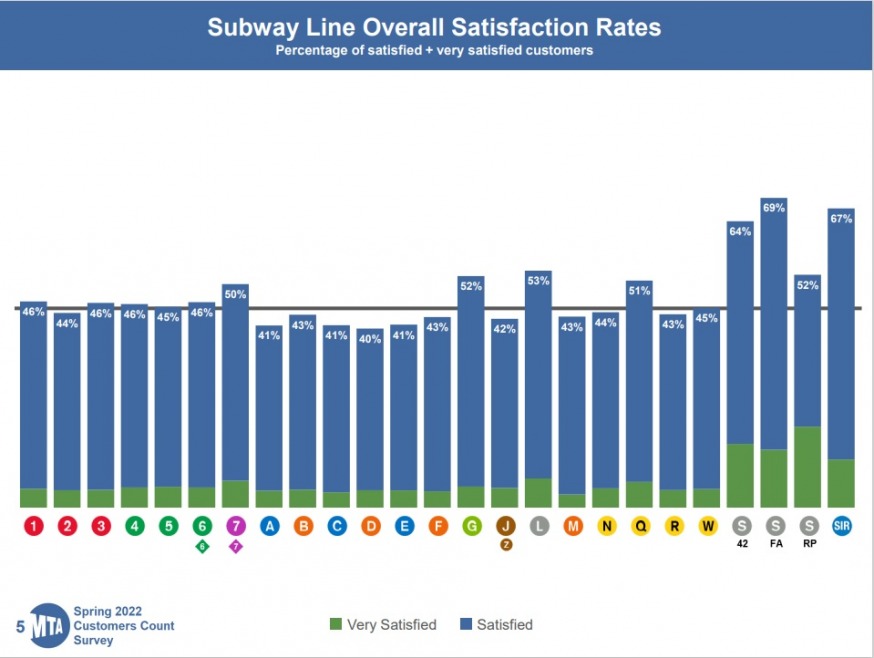
Fifty percent of subway riders said they were satisfied or very satisfied with 7 train service in a recent MTA survey. (iStock)
Sept. 20, 2022 By Christian Murray
The MTA released the results of it’s Spring 2022 bi-annual survey Monday that revealed that only 48 percent of subway riders are either satisfied or very satisfied with service.
The results were based on a survey where the MTA gathered feedback from riders who rely on New York City Transit, Metro-North Railroad and the Long Island Rail Road. The MTA received 268,000 responses, with 175,000 of the respondents being subway customers.
The survey, which was offered in eight languages, took place between June 14 and June 27 and was conducted online and via the phone.
Survey respondents ranked the 7, G, L and Q lines the highest in terms of customer satisfaction. Fifty percent were either satisfied or very satisfied with the 7-line service, with that number being 52 percent for the G train, 53 percent for the L train, and 51 percent for the Q train.
Most subway riders indicated that safety and security was extremely important. Only 33 percent, however, were satisfied or very satisfied with the level of personal security on the trains, with that number being 42 percent in terms of security at stations.
Service reliability was also deemed as important, with 52 percent of respondents reporting that they were satisfied or very satisfied.
“We take feedback seriously and want all our customers to feel confident that they will experience reliable and safe service every time they take subways and buses,” New York City Transit President Richard Davey said in a statement.
Customer satisfaction on the subway was low compared to the LIRR and Metro-North. The survey found that there was a satisfaction rate with both those rail systems of over 80 percent.
New Yorkers are letting us know what they like and what they feel needs work, and we appreciate their participation by taking the survey,” MTA Acting Chief Customer Officer Shanifah Rieara said in a statement. “We will do everything we can to make our customers feel most comfortable.”

The results of the MTA Spring 2022 survey based on the response of 268,000 MTA customers. Approximately 175,000 of the respondents were subway customers. (Screenshot of survey)

The results of the MTA Spring 2022 survey based on the response of 268,000 MTA customers. Approximately 175,000 of the respondents were subway customers. (Screenshot of survey)
